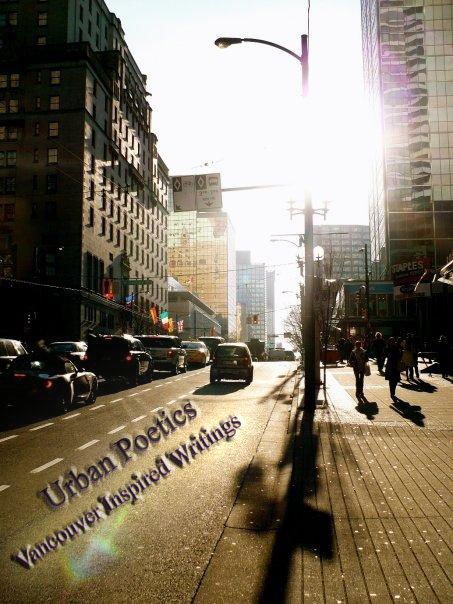Ok, time to delve into some Eliot. Firstly, I found a very interesting article called, The Composition of the WasteLand. It mentions something interesting about Pound's insight into it:
"Pound's criticism of The Waste Land was not of its meaning; he liked its despair and was indulgent of its neo-Christian hope. He dealt instead with its stylistic adequacy and freshness. For example, there was an extended, unsuccessful imitation of The Rape of the Lock at the beginning of "The Fire Sermon."
Check it out here:
http://www.english.uiuc.edu/maps/poets/a_f/eliot/composition.htm
However I wish not to continue delving into the WasteLand, as I have discussed it in my earlier blogs, and I wish to pay credit to Eliot's other poems: credit where credit is due.
The Hollow Men: We did not discuss the Hollow Men much in class, and I wonder why that is. My understanding is that the Hollow Men is considered to be the 'second part' of the Waste Land, though stylistically, it is quite different.
It appears a bit more traditonal that the Waste Land in terms of form: the lines are shorter. But Eliot definetely experiments with the modern. Firstly, his epigraph is intriguing: Mistah Kurtz, he dead, and A penny for the old guy, symbolize the rebellion against imperialism: What is it to be DARK, in Heart of Darkness? Who's heart is it that is dark? Is savagery dark? Here we encounter an interogation of the fictional versus the historical: 'A penny for the old guy' symbolizes the actuality of this imperial nature; to remember the rebellion against it, children traditonally collect candy...These two quotes serve the purpose of the epigraph greatly by throwing us into the poem with a particular overview/summary of humanity, perhaps its history: The history of imperialism, assimilation, conquer.
In my edition of the poem, the first quote is on the title page, and the second quote is on the first page of the poem. I'm wondering if anyone has any idea as to why that is...
"We are the hollow men, we are the stuffed men...." Such short lines! Seems so contrary to the Waste Land! It seems, however, that these shorter lines enrich the overall tone. The tone becomes even more serious, even more deep, morbid really. The rytyhm bounces up with, Let me be no nearer in death's dream kingdom, let me also wear such deliberate disguises...", then the sudden, "No nearer, not that final meeting, in the twilight kingdom." Powerful.
I love the transition into part 5: "Here we go round the prickly pear..." This is an allusion to a childhood song, whos history was based on a situation of death, I believe, the famine (though I may be wrong on this one.) Eliot combines the realms of childhood with the morbid to create the eerie tune. He then picks up pace with: "Betweeen the idea, and the reality, between the motion, and the response...." Very rhythmic. This reminds me of the earlier part (part 1): "Shape without form, shade without colour, paralysed force, gesture without motion." I believe that this segment demonstrates best Eliot's precision with words. PARALYSED FORCE is wonderful: What is force when it is paralyzed? This evokes imagery: Imagine a clenched fist that is unmoving. This is the hollow men, this is how we are.
"Life is very long," is touching, as is the famous, "this is the way the world ends, this is the way the world ends, this is the way the world ends not with a bang but a whimper." This quote seems to have shaped, or contributed to, the death sentence that seemingly casts its shadow over the 20th century: The cumulative idea that the world is coming to an end. Or perhaps it pokes at this question, it interrogates it: When the world ends, we won't think it ends. Perhaps it has ended already, but we did not hear it end, it was so quiet.
The Hollow Men is strong, strong: A poem that manages to be loud while being quiet. Very moving: The animation and mixed voices that are present in the Waste Land are not as present here (only somewhat). We do not encounter such a mixing of past and present. It switches some voices, but I suppose that it suggests the topic of the Present as one that carries with it the burden of the past, those quotes: How it deals with the history of man, not necessarily by revisiting it, or by repeatedly returning, but by letting it linger always there in the shadows. The unified sensibility is generated here: Emotional and intellectual are in full swing.
Sunday, April 10, 2005
Tuesday, April 05, 2005
(sigh)
Hello Blog,
Just a note to say that I haven't forgotten you. I was anxious for the exam, but I think I got through it okay. I just have to learn to write faster.
I've been cranking out assignments, but once I'm done with those (which will be soon), I can give you my full attention. Then it will be non-stop Eliot ranting.
Till then!
Just a note to say that I haven't forgotten you. I was anxious for the exam, but I think I got through it okay. I just have to learn to write faster.
I've been cranking out assignments, but once I'm done with those (which will be soon), I can give you my full attention. Then it will be non-stop Eliot ranting.
Till then!
Subscribe to:
Posts (Atom)

